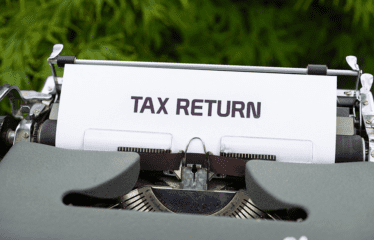

What are the procedures for declaring trade in goods in France in 2023?
- What is a declaration of exchange of goods (DEB)?
- The declaration of exchange of goods (DEB) no longer exists
- The new DEB system applicable to companies since 2022
- EMEBI, the statistical survey declaration for intra-Community trade
- VAT recapitulative statement for intra-EU supplies of goods
- Who has to make an exchange of goods declaration, and when?
- Who is subject to the new declaration of exchange of goods in Europe?
- Notion of Intrastat threshold at introduction and dispatch
- EMEBI and Intrastat thresholds for DEB declarations in 2023
- When do I need to make an exchange of goods declaration?
- Declaration of trade in goods in 2023: obligations
- DEBWEB2: services for businesses on the customs website
- EMEBI monthly statistical survey: introduction and dispatch information
- VAT summary statement managed by DGFIP, but entered on DEBWEB2
Are you familiar with the term DEB or déclaration d’échanges de biens? Since 2022, this European formality has been replaced in France by new provisions. In addition, as every year, European countries must apply modified Intrastat thresholds on January 1, 2023 for introduction and dispatch. This article reviews the procedures to be followed for the new DEB, the EMEBI and the VAT recapitulative statement.
What is a declaration of exchange of goods (DEB)?
The DEB consists of a monthly declaration to customs of all intra-Community trade operations carried out by a company in a European country.
The declaration of exchange of goods (DEB) no longer exists
The DEB will cease to exist as such in 2022, although the objectives of the new declarations remain the same. On the one hand, the aim is to compile balance-of-trade statistics for each member state of the European Union. On the other hand, it is the basis for a tax audit of goods flows within this free-trade zone, without customs declaration (unlike exports and imports).
The new DEB system applicable to companies since 2022
As of January 2022, the DEB has changed. Indeed, the declaration of trade in goods in the form known until now no longer exists. It has been replaced by a tax formality and a statistical survey.
If You Are A Customs Representative Or A Non-EU Company, Contact Us For More Information!
EMEBI, the statistical survey declaration for intra-Community trade
Commonly referred to as an “Intrastat” declaration in the European Union, this is actually a response to a statistical survey. In France, companies can only make this declaration if they have received a letter of notification from the DGDDI requiring them to participate in the survey for 2023 or the coming quarter. The procedure is similar to that of the old DEB, with details of inward and outward flows. It should be noted, however, that in the absence of flows for a given period, response to the EMEBI remains mandatory, unlike the previous DEB system.
VAT recapitulative statement for intra-EU supplies of goods
This tax information is called the “EC Sales list” in Europe. Previously, this information was contained in the former declaration of exchange of goods. This VAT recapitulative statement details (only) intra-Community supplies of goods. It enables the tax authorities to control VAT on these transactions. Acquisitions of goods are not carried forward.
Who has to make an exchange of goods declaration, and when?
Since the new declaration of trade in goods now comprises a statistical section and a tax section, which operate differently, let’s take a look at the obligations for each formality.
Who is subject to the new declaration of exchange of goods in Europe?
The declaration of trade in goods is potentially mandatory for all companies trading goods with another European country. However, in 2023, for the statistical survey declaration for France, companies will only have to make this declaration if they receive a formal request by post. In this letter, the customs administration specifies the flow concerned: introduction, dispatch or both.
Notion of Intrastat threshold at introduction and dispatch
Each year, companies must refer to the new thresholds applicable for each EU country. Each member state has a threshold in euros for the introduction of goods, and another for dispatch. For the EMEBI statistical declaration, the company must draw up a declaration for intra-Community deliveries in the country of departure of the goods, if it exceeds the threshold on dispatch. For intra-Community acquisitions, the company declares in the country of delivery if it exceeds the threshold at introduction.
For the VAT recapitulative statement or EC Sales List, on the other hand, the company must systematically declare intra-Community supply flows from the first transaction.
EMEBI and Intrastat thresholds for DEB declarations in 2023
At the start of 2023, fifteen European countries will see their thresholds changed compared to 2022. In Germany, for example, the threshold for introduction is 800,000 euros. The dispatch threshold is 500,000 euros. However, for France, both the introduction and shipment thresholds remain different for 2023. These thresholds will not apply in 2023. As already mentioned, the customs administration carries out a statistical selection of companies, both on entry and on dispatch.
When do I need to make an exchange of goods declaration?
For companies concerned by the VAT recapitulative statement and possibly the EMEBI, formalities are carried out on a monthly basis. The deadline is the 10th working day following the month in question.
Declaration of trade in goods in 2023: obligations
Let’s now take a closer look at how to meet your obligations for declaring goods in France in 2023. Both the statistical survey and the VAT recapitulative statement will be filed online via the same customs portal.
DEBWEB2: services for businesses on the customs website
The major change came at the beginning of 2022, with the introduction of an online service called “Échanges Intra-UE de biens (DEBWEB2)”. Here, companies can carry out the two procedures that now make up the new DEB in France. They can also access the history of their declarations. The portal generates an electronic acknowledgement of receipt after each declaration has been registered.
The service allows you to import files. This eliminates the need to enter each field per transaction (goods nomenclature, country of origin code, customer VAT number, mode of transport, etc.).
EMEBI monthly statistical survey: introduction and dispatch information
If the company is part of the sample defined by the French tax authorities, it must respond each month to the EMEBI statistical survey. The declaration includes:
- the reference period ;
- type of flow (introduction or dispatch) ;
- identification of the reporting company ;
- 8- or 9-digit product nomenclature ;
- country of destination or origin ;
- the tax value of the goods ;
- the terms and conditions of the EMEBI plan code;
- net mass and additional units of measurement ;
- the nature of the transaction (code) ;
- mode of transport ;
- the department in France ;
- country of origin ;
- the customer’s VAT identification number.
VAT summary statement managed by DGFIP, but entered on DEBWEB2
This declaration includes the tax value of the goods, the tax code of the transaction and the VAT number of the buyer in Europe. The company can opt for a pre-filled declaration. This is done automatically on the basis of the statistical survey relating to the shipment flow. However, this option is limited to system code 21. In the event of file loading for EMEBI, this data can be used to pre-fill the VAT recapitulative statement.You now have the essential information you need to file a DEB in France. Would you like to find out more about the flow of goods to or from a member state of the European Union?
Contact The Experts At Fiscalead
